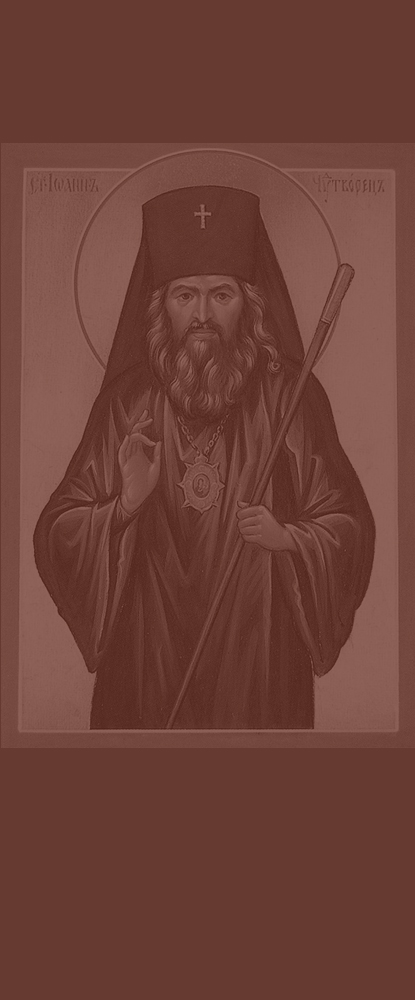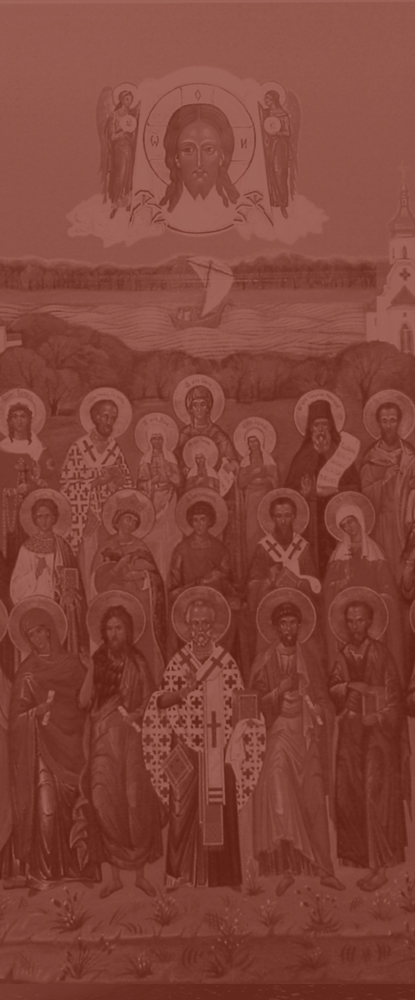SERMON FOR THE DAY OF SAINT JOHN OF SHANGHAI
AND SAN FRANCISCO
Archpriest Sergiy Baranov
02.07.2023
This saint is called Saint John of San Francisco and sometimes, Saint John of Shanghai. He is our fellow countryman, who was born in Rus. The history of our great Motherland went the way that after the revolution, the great persecution of our Church began. Saint John had, together with a large number of the Russian intellectuals, to leave the country first for China; this is why there is such a prefix to his name as the Bishop of Shanghai. He served in Shanghai and guided the flock of our immigrants, who lived in an alien land and suffered hardships. He took care of little orphans, who by circumstance were left parentless in the foreign country. A big community of parentless children gathered around him there.
When the Cultural Revolution started in China and the Church was persecuted as fanatically and terribly as in Russia, Saint John had to take all his children, who were gathered around him, and leave for the Philippines. They lived for some time in the Philippines, but circumstances made them leave the country and move somewhere else.
They decided to move to America. In those days, America was not as ungodly as it is now, it was a bit different country. America, of those times, harbored a great number of our immigrants. However, in those times, America passed a law prohibiting him from coming into the country together with such a big community. The Lord helped Saint John, and for his sake, another law was signed, valid for just one day, as an exception, and Vladyka John with all his numerous flock, including the parentless children, settled down in San Francisco, the West coast, California. There he lives his last years, he builds new churches, he guides our immigrants, and he dies there. Some time later, he is glorified as a saint for his exceptional feats. These feats do not include only the feats of good deeds, but also a mystic feat, his life in Christ.
In thirty years, when his relics were discovered, they appeared absolutely incorruptible. By good fortune, I had an occasion to visit San Francisco and this church, which was built by Vladyka John, and to pray by his relics. He was lying there incorruptible, only because he had been lying for thirty years there, his relics became brown, as dark wax. As I have already said, his relics rest in the church that he built and dedicated to the Icon of the Theotokos “Joy of All Who Sorrow,” and the old church there is also preserved, where the orphanage for his children was located. Some of his children are still alive. They were children then, when Saint John saved and guided them but now they are very old people.
You know, there is one peculiar thing about them. Everyone of them, remembering Saint John, said one and the same thing, “Vladyka John loved me more than the others.” Perhaps, this might sound subjective when everyone says, “he loved me more than the others,” but in fact, there was so much love in him that everyone who met him thought that Vladyka loved him or her more than the others. This is what an abundance of love he had. By the way, his love was not something sentimental, it was spiritual and he could even be very strict.
Some modern people imagine, as our notion of love has changed, that love is only some funny business when you pamper your object of love. In fact, if a person is truly in love, he or she is worried about the fate of the beloved. To pamper and leave your beloved to die in this damaged state. How can a loving heart permit this? This is why we say that Vladyka John had much love, but some people think about sentimentality.
Today we have just read the Gospel dedicated to the Enlightener and we found the following words there, “The good shepherd gives His life for the sheep.”* This means that true love is not only a relationship, communication and the feelings of joy and delight. It appears that the one who loves gives his or her life for the beloved. He literally dies for the beloved in life circumstances and misfortunes every day. It is related to the fact that the object of love sometimes behaves in a way that brings him or her to destruction and this hurts the one who loves. The object of love, for example, our children, do not only bring us joy but also make us sad. We give them our whole life, our whole soul, and they often upset us by their inexperience in life. Don’t they? They upset us by their naughtiness and disobedience. Meanwhile, we have to give our life for them.
In other words, when we speak about love, some people expect only a kind of inspired delight and flight, but actually, the highest understanding of love is on the cross. The Highest Love is Christ on the Cross. This is the meaning of the highest love. In this meaning, the good shepherd gives his life for his sheep, the sheep who might be butting, disobedient, and wandering off in different directions. Poor shepherd, he gets blisters on his feet trying to gather them! But the sheep might be ungrateful. In this very meaning, this is the highest manifestation of love. It is easy to love the one whom you like and who is obedient. But it is hard to love the one who brings you much sorrow, discomfort and even great pain.
This is the kind of love Saint John of Shanghai and San Francisco had. By his prayer, let us understand the meaning of love a little, let us see the point of love and bring ourselves to it. I say “bring ourselves” because it is sometimes scary to go ahead with the love I am talking about. It is painful and brings discomfort and uneasiness. Nevertheless, we should go in for it looking at our Originator of the Feat Jesus Christ.
Glory to our God, always, now and ever, and unto the ages of ages. Amen!
Thank you for today’s service. It was a pleasure to pray together with you. May God help you!
*Jn. 10:11

